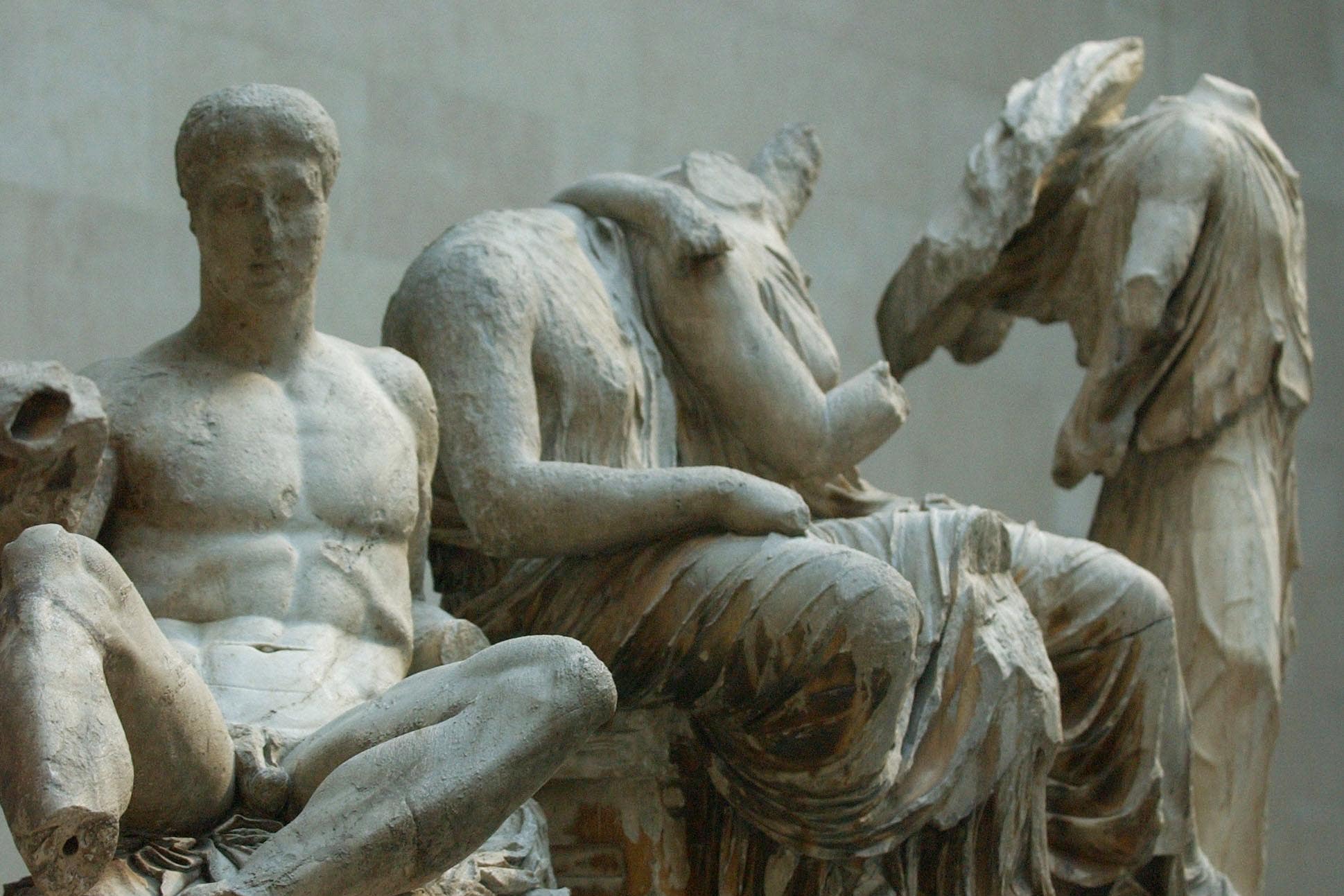No plans to change law over Parthenon Sculptures row, says No 10
The British Museum is prevented by law from disposing of objects in its collection except in limited circumstances.

There are “no plans” to change a law which would prevent the British Museum handing the Elgin Marbles back to Greece.
Former chancellor George Osborne, the chairman of the British Museum, has been holding secret talks with the Greek prime minister over the possible return of the Parthenon Sculptures.
Downing Street said there were no plans to change the law which bans the museum from disposing of objects from its collection except in very limited circumstances.
The Prime Minister’s official spokesman said: “We have no plans to change the law, which prevents removing objects from the British Museum’s collection, apart from in certain circumstances.
“Our position on this hasn’t changed. Decisions relating to the care and management of the collections are a matter for the museum and its trustees.
“The Parthenon Sculptures are legally owned by the trustees and operationally independent of the Government.”
Talks between Mr Osborne and Greek premier Kyriakos Mitsotakis have been taking place in London since November 2021, according to Greek daily newspaper Ta Nea.
A British Museum spokesperson said it wants a “new Parthenon partnership with Greece” but the institution operates within the law “and we’re not going to dismantle our great collection as it tells a unique story of our common humanity”.
The sculptures – which decorated the 2,500-year-old Parthenon temple at the Acropolis – were taken by Lord Elgin in the early 19th century when he was the British ambassador to the Ottoman Empire, and have been the subject of a long-running dispute over where they should be displayed.
As well as the controversy over the Parthenon Sculptures, in recent weeks the Horniman Museum in south London has returned looted bronzes from Benin City to Nigeria and the Wellcome Collection closed its Medicine Man gallery because it “perpetuates a version of medical history that is based on racist, sexist and ableist theories and language”.
Downing Street said the public will “vote with their feet” if they dislike museums removing controversial objects from their collections.
“I’m cautious about commenting about how specific museums should display their collections, I think that is rightly a matter for them,” the spokesman said.
“Clearly they will need to justify any decisions made to the public and the public will make a judgment based on voting with their feet on whether they think they’ve got the right balance.”